This year, as I’ve done for the last five years, I took the time to watch all of the nominees for Best Picture at the upcoming Academy Awards. Why, you didn’t ask? Good question. I think that, despite what feels like a recent decline, movies have always had a very unique and outsized impact on our culture at large. These days, TV/streaming, video games, and even social media permeate the zeitgeist more than ever, while movies are pushed more towards the back of the line than they’ve been in the past. Yet, I can’t shake the feeling that movies are important. For my money, there are few experiences like seeing Star Wars, Mission Impossible or Dune on the big screen. I can barely get through a day without quoting Shrek, Mean Girls, or Harry Potter. Much like ogres and onions, movies have layers and the best ones should be celebrated!
I also believe that in the current age of content overload, we need some sort of tool to sort out the good from the bad. Sites like Metacritic or Rotten Tomatoes promise to deliver that information in an easily digestible package, offering consensus opinions of critics and fans alike. But the Academy Awards have long been the gold standard (literally)! These movies are billed as the absolute best we have to offer. If you want to cut out the noise and go straight for the top, this list should be where you begin and end for any given year.
Unfortunately, the Academy has a popularity problem; I know I’m far from the only person to talk about this. By the time the show rolls around, the Academy is lucky if the average moviegoer has seen or even heard of half the nominees. What this disparity signals is that the Academy values different qualities of moviemaking than the general public.
And maybe they should! Maybe their role is as the curators of quality film, spreading the gospel of cinematography and sound mixing as critical pieces of the puzzle. At the end of the day, the Oscars are trying to convince us that the craftsmanship that goes into movie making is more important than entertaining a mass audience. But why not have our cake and eat it too?
Institutions like the Oscars should help us sift through the mediocrity that hits us in the face every time we log into Netflix, Hulu, Amazon, etc., and with that shiny nomination should come high expectations. But when the Academy is simultaneously telling us these are the best movies of the year while also placing significant value on qualities the average movie fan doesn’t even register, seeing an “all caps” BEST PICTURE NOMINEE stops carrying the weight it once did.
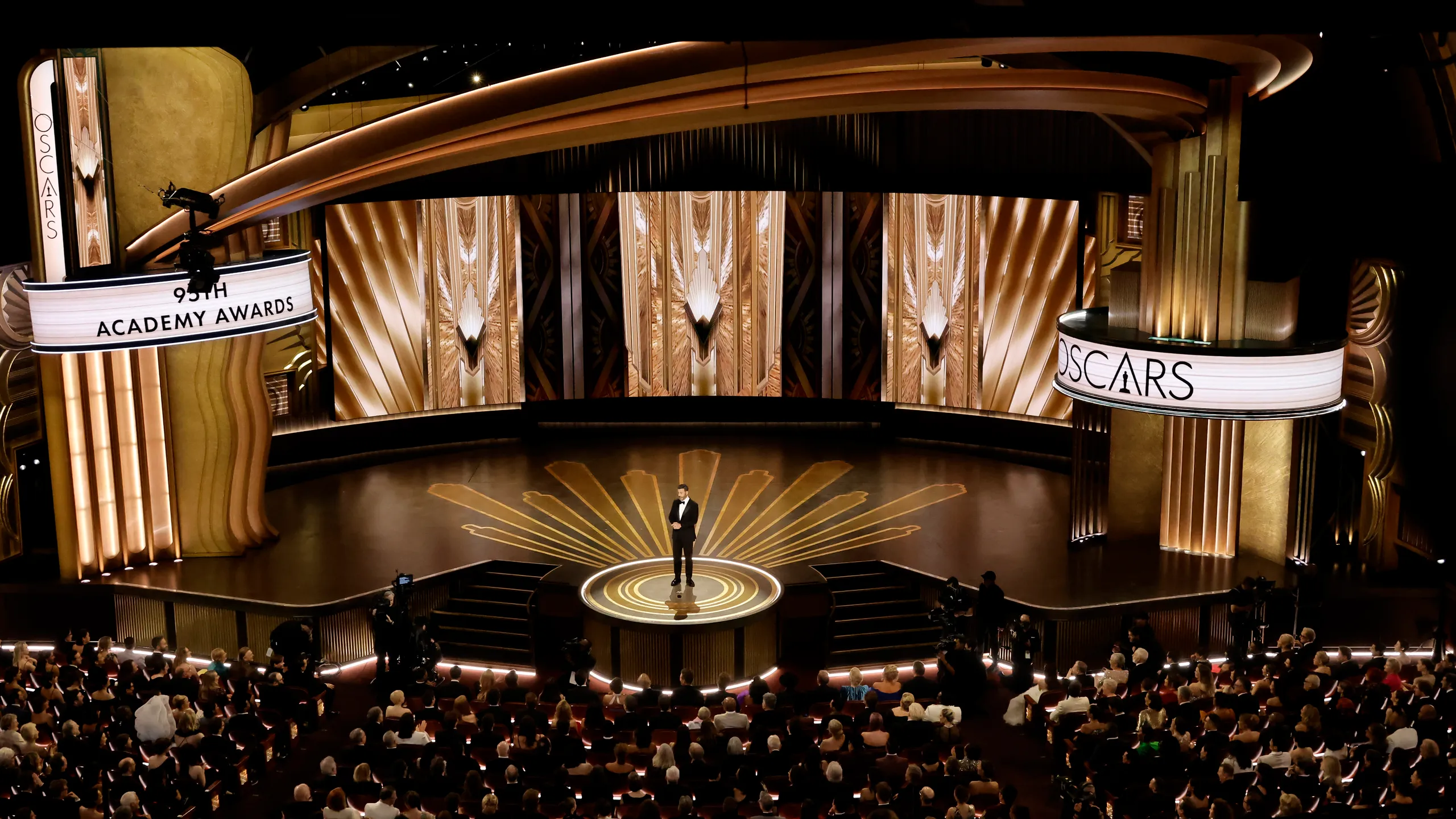
My Criteria for a Great Film
Personally, I tend to rate these films on three main factors: craft, story, and entertainment value. In other words, I’d like a movie to be nice to look at, have an interesting and engaging plot, and ultimately be fun to experience. True masterpieces should nail each of those points while also either trying something new or conveying a meaningful message. I don’t think that’s a particularly unique or groundbreaking set of criteria, but at times it feels like the Academy has a different definition of “entertaining” than the rest of us.
Because of that, I don’t blame any so-called cinephile for skipping out on a given year’s Best Picture nominees, but I am happy to report that this year’s are some of the best I can remember. Even the ones I didn’t care for story-wise did enough to warrant a positive review for the craftsmanship behind the production. Certainly with all these films, anyone can tell there’s a significant amount of talent both in front of and behind the camera.
If you’re interested in another perspective, I recommend reading Sam Martinelli’s top 10 films of 2023 list, but without further ado here’s my ranking of this year’s Best Picture Nominees!
These are reviews and opinions of the Best Picture nominees which have some minor plot summaries but are spoiler-free, in case you want to see them yourself!

#10: The Zone of Interest
The Zone of Interest is a tough watch for many reasons. First and foremost, despite sitting through the whole thing, I don’t feel like I digested enough of the story to provide a synopsis without the help of Wikipedia. “Starring Christian Friedel and Sandra Hüller as the German Nazi commandant Rudolf Höss and his wife Hedwig, it follows the pair as they strive to build a dream life for their family in a home next to the Auschwitz concentration camp.” Sure. I got some of that, but to say The Zone of Interest doesn’t give the audience much to work with is an understatement.
The Zone of Interest essentially amounts to what it would be like to watch a bunch of hidden cameras in the house of a Nazi officer as they go about their business. Such a film would no doubt be chilling in its portrayal of normalcy and heartbreaking in its lack of recognition of the victims at Auschwitz, but goodness it would also just be flat out boring to watch. I understand that the point here is to shock the viewers’ sensibilities with the extreme subtlety and make people wonder how someone so cruel can seem so at peace. That’s a fascinating portrait to paint, but unfortunately it does not make for an engaging viewing experience. Mercifully, at 105 minutes it is the shortest of this year’s nominees, so at least it has that going for it!
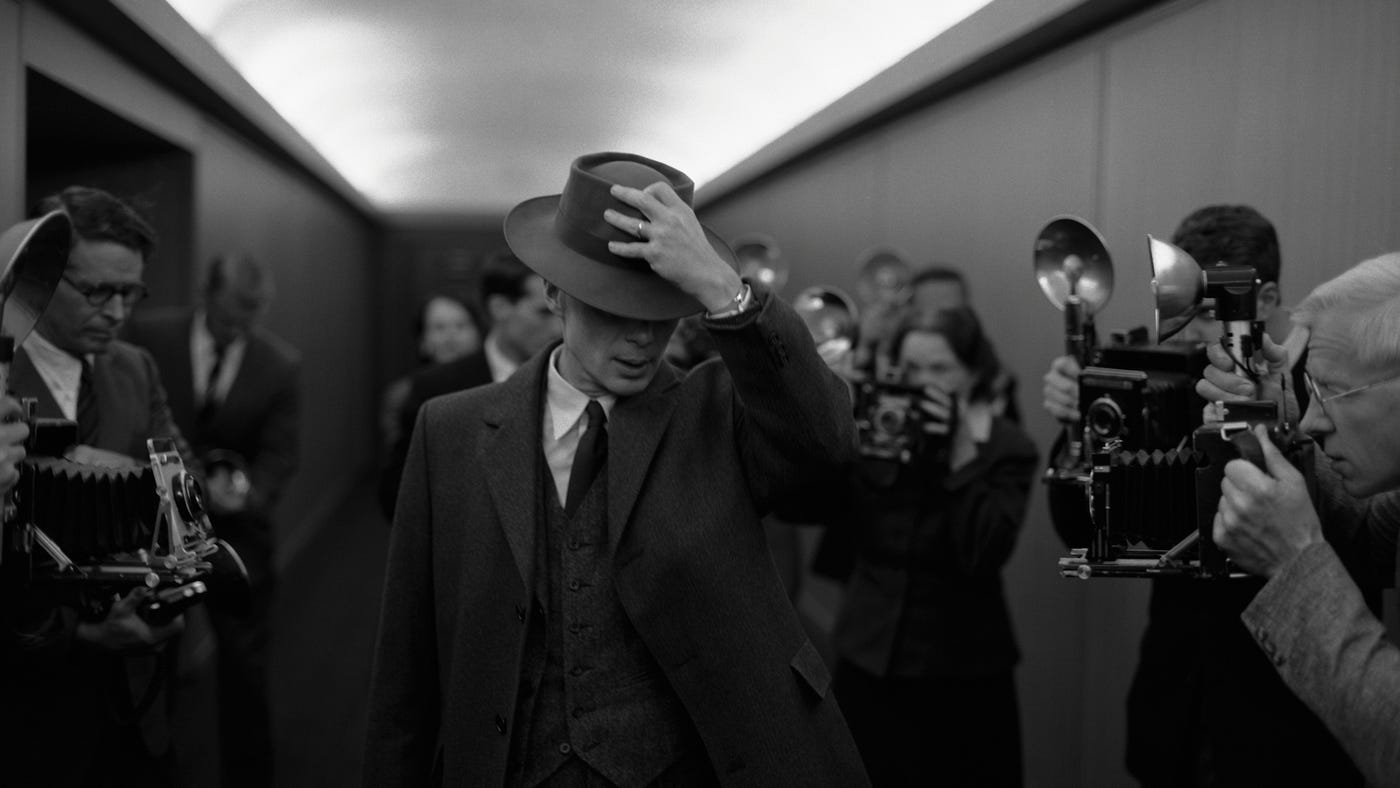
#9: Oppenheimer
I’ll certainly give Oppenheimer credit for being the talk of the internet this past July (along with Barbie of course). A three hour biopic is not your typical fodder for millennial moviegoers, but seeing as it came in as the third highest grossing film of 2023, it must have been doing something right! Personally, I’m just not sure what.
The story of the “father of the atomic bomb” simply didn’t do it for me, in large part due to the framing device director Christopher Nolan chose to use to keep the narrative moving. Instead of a straight retelling of the main beats of Oppenheimer’s life, we’re forced to spend what felt like the majority of the movie with Robert Downey Jr.’s character, Chairman of the Atomic Energy Commission, Lewis Strauss. If you had told me the entire film was about him instead, I wouldn’t have argued. RDJ gives a solid performance to be sure, but I struggled to connect all the pieces as to why I was so worried about his confirmation hearing for Secretary of Commerce. What felt like a footnote of the whole story became the thread holding it together and took away from the actual meat and potatoes of why someone would go see an Oppenheimer movie in the first place.
The other half of the movie is spent at Oppenheimer’s 1954 security clearance hearing, where he reflects and answers questions about his time building the bomb. Unfortunately, I wasn’t interested in his security clearance nearly 10 years later, so the stakes after the fact seemed non-existent. Much like how The Zone of Interest didn’t feel the need to show the horrors of Auschwitz and instead trusted the audience to understand the historical significance, Oppenheimer cuts corners where it could have delved much more deeply into the development and impact of the atomic bomb. Assuming viewers have a relationship with the events is one thing, but glossing over them completely is another. Save for one memorable explosion, there’s hardly any science being done on screen and no visual evidence that J. Robert Oppenheimer is the genius everyone says he is.
In the end, I was somehow left wanting much more, which is shocking when I could barely keep my eyes open long enough as it was.
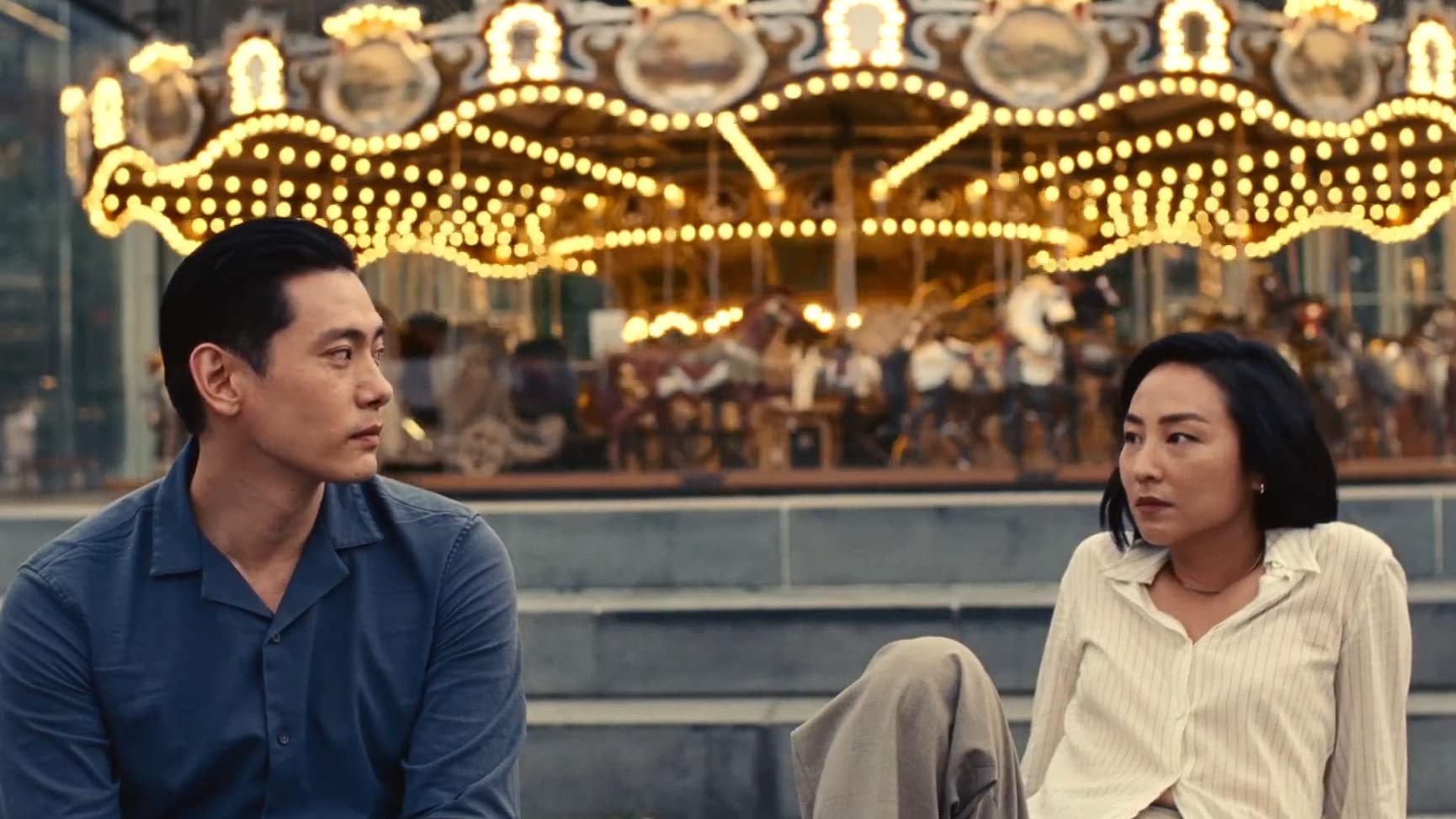
#8: Past Lives
It would be a bit reductive to simplify the entirety of Past Lives into one sentence, but unfortunately it would also be quite easy: Childhood friends reconnect after decades apart, wondering how their lives could have been had they never parted ways, but then they part ways…again. It’s that last bit that left me wondering why I bothered to spend the time watching their story at all.
Sure, the time spent with our “couple”, Nora and Hae Sung, is largely warm and enjoyable. There were some sweet scenes of a budding love in the buildup to their in-person meeting, but none of the intrigue or potential conflict ever bubbles up to the surface in a meaningful way. The closest we get is a brief discussion between Nora and her husband, who understandably has some thoughts about his wife spending time with her former crush.
At the end of our journey however, we’re right back where we started, friend-zoned and just a bit more aware of all the ways our lives could be different. Bummer.
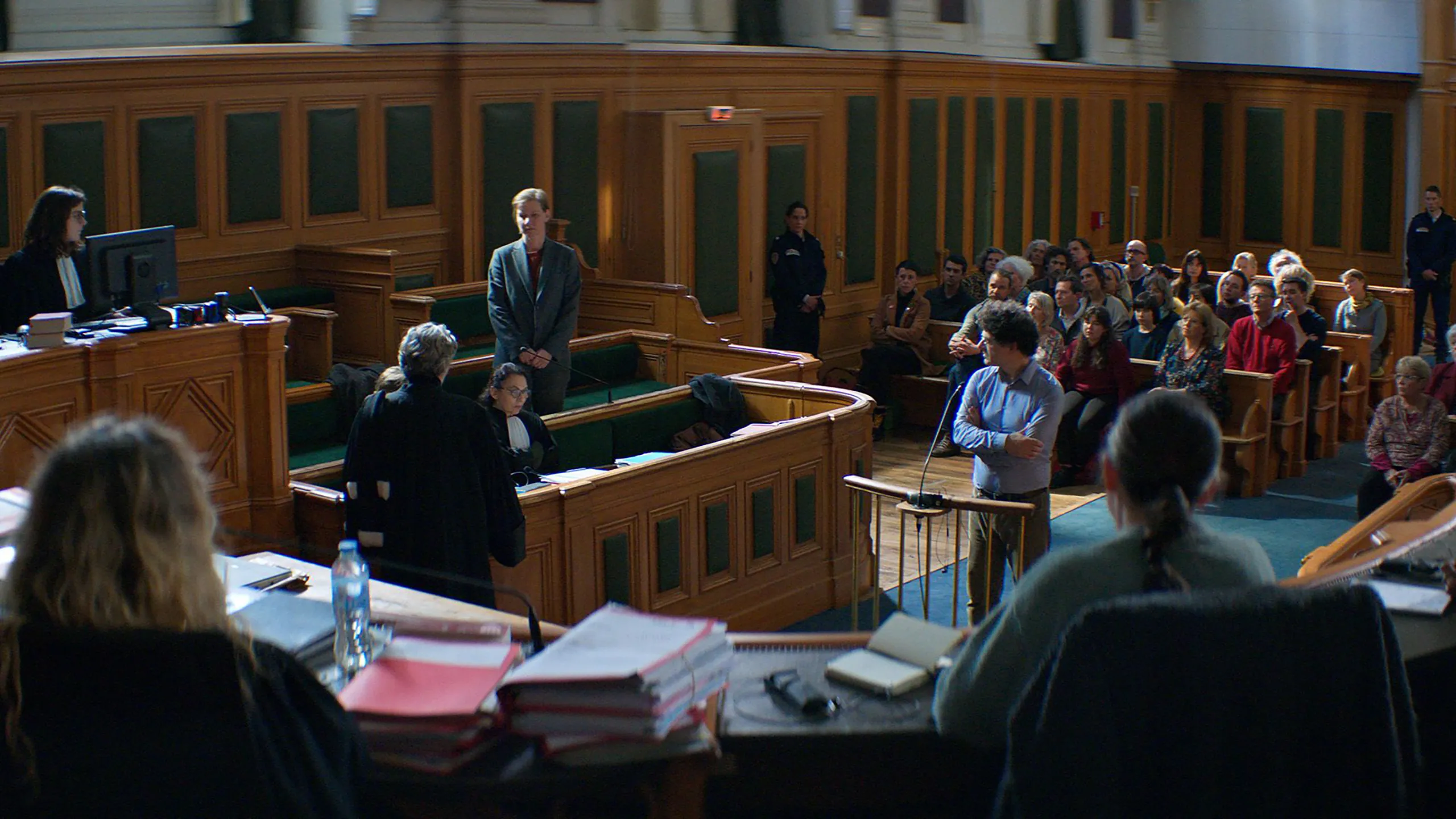
#7: Anatomy of a Fall
Originally, I had Anatomy of a Fall rated a bit more favorably, yet when I sat down to put it in this list I felt that the way it lingered for me (or maybe the way it didn’t) was telling.
The setup of the film is quite interesting, especially for any true crime fans out there. A husband and wife, who are both authors, are living in a snowy cabin in France with their son, who is blind, and their dog (it is a travesty there is no animal Oscar category because Messi the border collie would win in a landslide). Within the first few minutes, we see the husband’s dead body found outside the home, discovered by the family dog returning from a walk with the son. The wife, Sandra, was seemingly the only other person in the house at the time of his death, yet she is unaware of what happened.
Unfortunately, instead of a twisty-turny psychological crime drama thriller, the majority of the “action” takes place in a courtroom with very straightforward arguments and little actual build-up or tension. I found the minor surprises just that, and ultimately they didn’t seem to move the needle in the trial. I am not opposed to a courtroom drama, and the dialogue here is very strong, but eventually we’re left with an inconclusive ending that feels very unsatisfying.
I usually love to discuss ambiguous endings and gather alternative opinions, but what could’ve been a fascinating mystery fizzles out in a way that doesn’t even seem compelling or fun enough to debate after the credits roll. Without the dog, this would have certainly been even lower on my list.
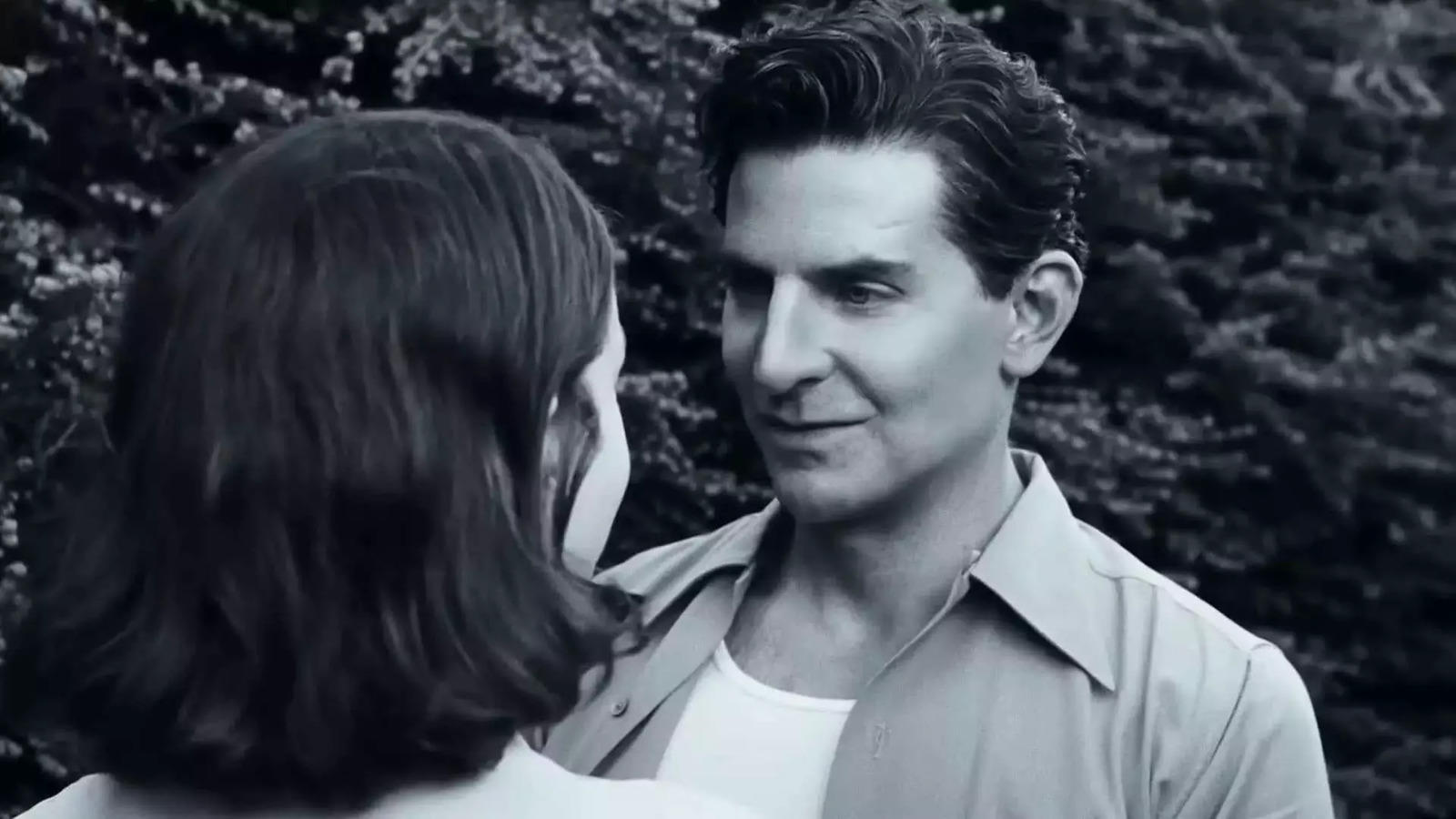
#6: Maestro
Maestro tells the story of conductor/composer/musician Leonard Bernstein, a man who I knew very little about prior to seeing the film and wasn’t sure I’d care deeply enough to learn more about. It turns out I was in luck, because I didn’t learn all that much about him and I still don’t really care to find out what I’m missing.
No offense to the late Mr. Bernstein, of course, but films where I watch someone else tell other people how to play music don’t really do it for me (Tár was one of my least favorite nominees from last year). The trick here, however, is that Maestro is much less focused on the professional accomplishments of Bernstein than it is the personal relationships he had, specifically with his wife Felicia Montealegre.
Considering I came into the viewing experience expecting two and a half hours of a man scribbling on sheet music and vigorously waving his arms in front of people playing the violin, I was actually quite pleased to get a moderately interesting family drama with only a few sprinkles of extremity flailing. This isn’t a “here’s where it all began” type of movie; instead, much of the film takes place when Bernstein is already an adult and explores his connection to his wife, kids and importantly his many other sexual partners. The story itself is told in a captivating style with most scenes only lasting a few minutes before moving onto the next part of our hero’s journey.
That pace, along with a masterful performance by Carey Mulligan as Montealegre kept me entertained enough, but Maestro isn’t one I’d go out of my way to recommend or see again.
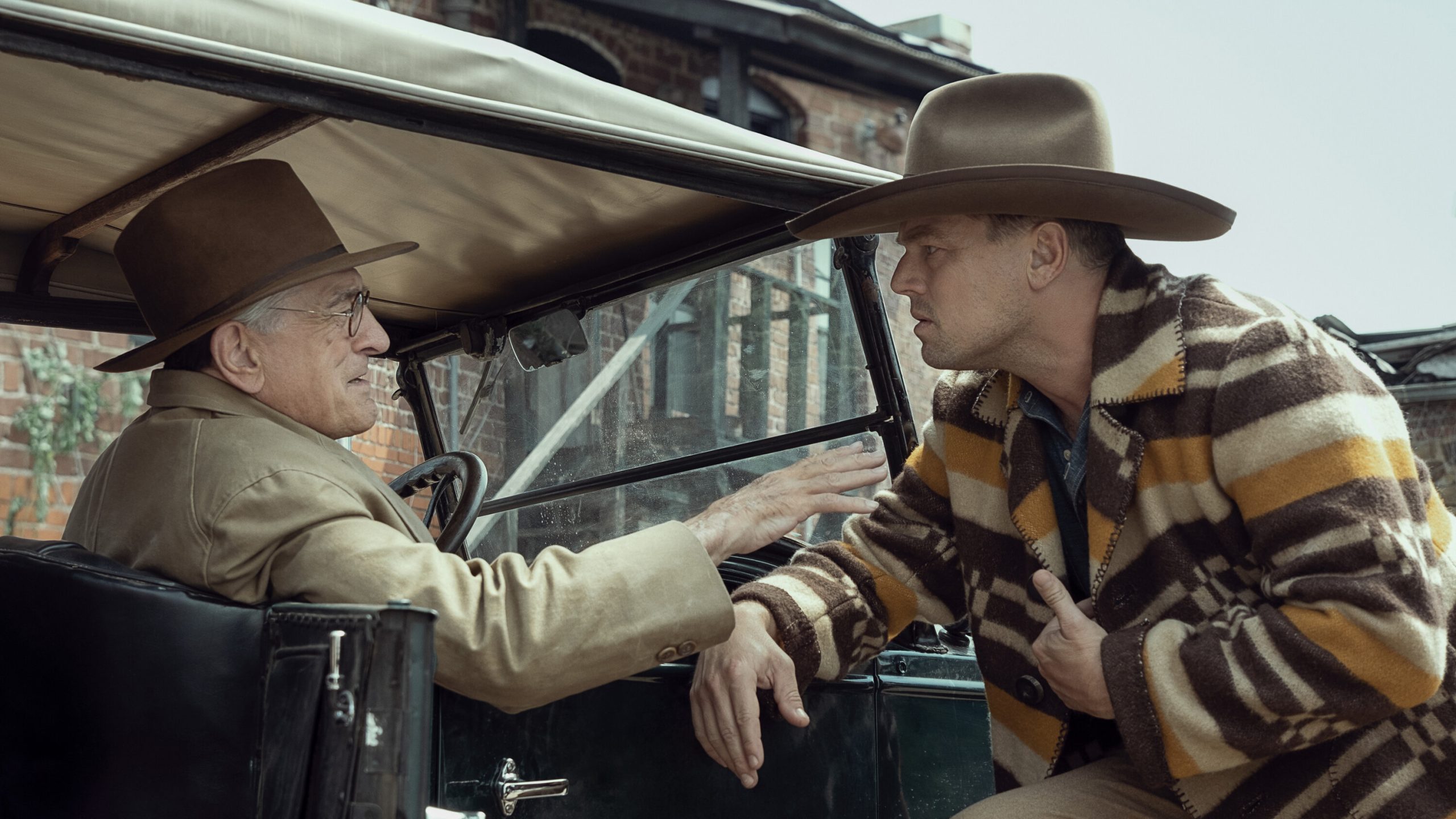
#5: Killers of the Flower Moon
Of all the films I saw this past year, Killers of the Flower Moon was the toughest for me to rate. Killers is a look at the Osage murders, a series of killings of wealthy Native Americans by crime boss William Hale and his nephew Ernest Burkhart, played by Robert De Niro and Leonardo DiCaprio, respectively. The planning, execution, and consequences of these crimes are simultaneously fascinating to watch unfold and heartbreaking to witness.
At nearly three and a half hours long, there is a lot of story to be told here, but I was pleasantly surprised with how engrossed I was practically the entire time. The writing and pacing are strong suits, as each plot point feels deeply critical to the overarching story. Despite the run time and expansive scope of the film, I came away very impressed with how tightly everything was put together.
The peculiar piece for me, however, is the ability director Martin Scorsese has to portray truly abhorrent behavior while barely making the audience bat an eyelash. Nearly every killing is done in a split second, with a single gunshot to the head or a massive explosion. There is rarely any buildup, intrigue, or suffering shown, just murder after murder taken care of in an instant. In a similar vein, nearly all of the dialogue in the film is spoken at a conversational volume, except for one of two arguments across the more than 200 minutes. Because of the overall tone set, not once did my heart race or my palms sweat, despite seeing brutality and devastation take place in front of me.
For that reason specifically, I had a hard time describing Killers as anything truly special. Though I intellectually felt horror for the crimes that I saw, I didn’t actually feel anything when I saw them. Maybe that makes me a sociopath, but from my vantage point, Scorsese’s cold, calculated and impersonal directing left me with an unscratched itch from a film that was otherwise incredibly strong.
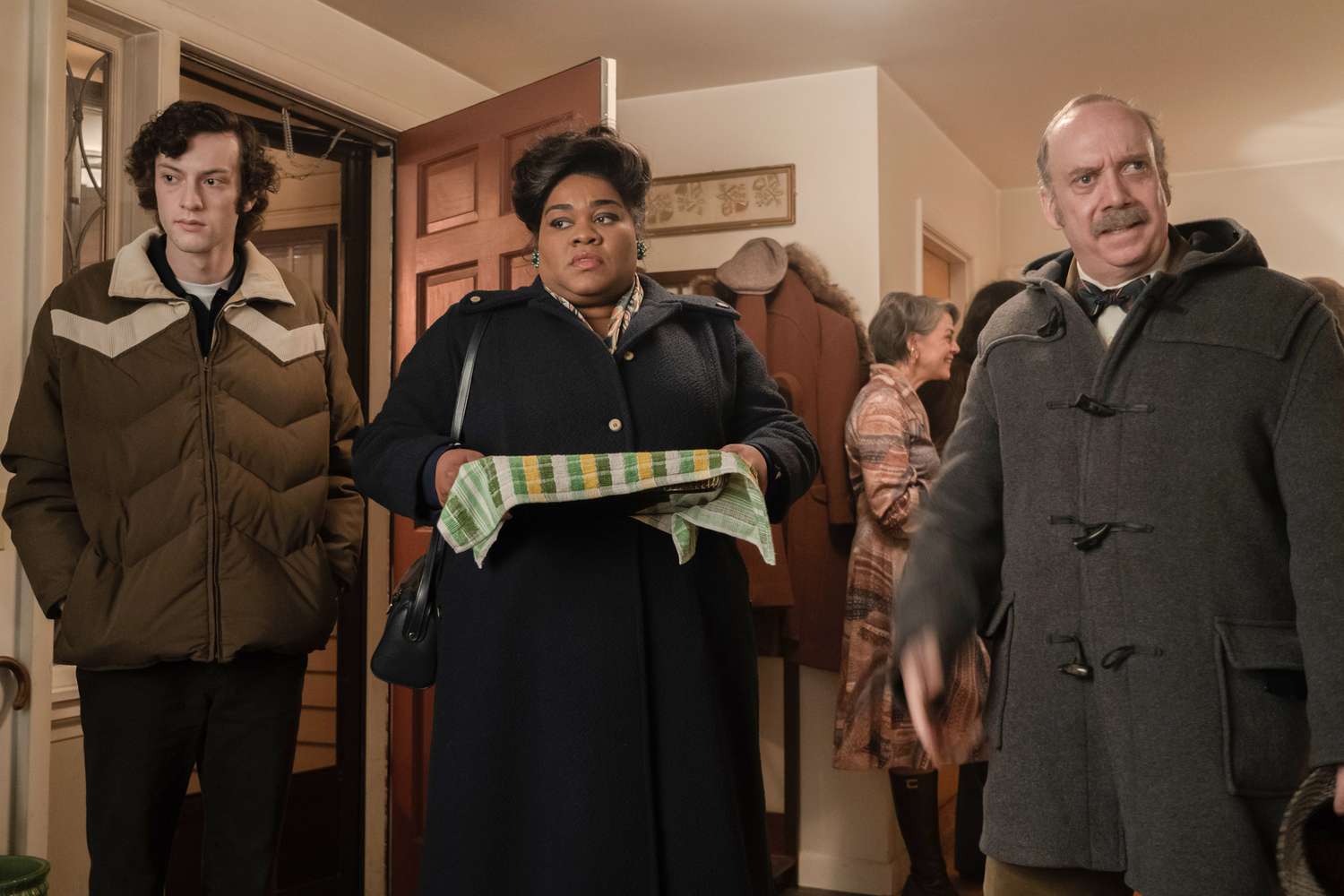
#4: The Holdovers
Though this may not mean much in and of itself, The Holdovers, to me, is a quintessential 8/10 film. It would be the exact benchmark I use to describe how I personally rate movies and what my tastes are. I found it well-crafted, easy to follow, emotional and it definitely made me laugh. There’s no unique style or critical message to take away here, but everything it tries to do absolutely succeeds.
The Holdovers tells the story of a curmudgeonly old professor, played by Paul Giamatti, at a boarding school in New England who is forced to spend Christmas break with the students who have nowhere else to go. Predictably, after a week partaking in a series of misadventures with student Angus and cafeteria worker Mary, this Grinch’s heart grows three sizes and he learns the true meaning of Christmas!
I would describe the story as formulaic and rarely surprising, but the performances by Giamatti, Dominic Sessa as Angus, and Da’Vine Joy Randolph as Mary are more than enough to make up for that. It’s a safe, funny, kind-hearted holiday story that I can easily see revisiting year after year with family and friends.

#3: Barbie
There’s not much to say about Barbie that hasn’t already been said, but count me among the masses who had a ton of fun watching the adventure unfold. Margot Robbie and Ryan Gosling grabbed all the headlines, but America Ferrera, Kate McKinnon, and Michael Cera, along with countless other Barbies and Kens, really rounded out an all-star cast that made this a memorable and wacky story from start to finish.
Barbie was a massive accomplishment, not only because it was the highest grossing film of the year, but also because it got people going to the movies, dressing up at theaters, and discussing relevant social issues while dancing the night away (that song will be stuck in my head until the end of time).
My only minor complaint is that the journey from Barbieland to the good ol’ US of A and back felt like a stretch. Sure, a movie about living dolls is a stretch in its own right, but I like my worldbuilding to at least follow some rules. Eventually it becomes clear that the over-the-top absurdity was part of the charm the whole time, but the Barbieland scenes were wholly fantastic and I wish we could’ve spent even more time there. Can’t wait for the rest of the Mattel-verse to drop soon!

#2: Poor Things
I’ve got a high tolerance for “weird” when it comes to media, but that one word is what comes to mind first, second, and third when I think of Poor Things. It is the complete opposite of Past Lives, in that I don’t think I could distill the plot into a dozen sentences, much less one. But I suppose here it goes: Godwin Baxter, played by Willem Dafoe, is something of a (mad) scientist who fancies cooking up Frankenstein-style creatures like a duck with a dog head or vice versa. When he finds Bella Baxter (Emma Stone) dead in a river, he decides to take the brain from the baby she was carrying and transplant it into her skull in an effort to reanimate her. Suffice to say, it works and he is soon caring for a full-grown woman with the intellect of an infant.
The film is seemingly set in Victorian-era London, but given the wackiness and general fantastical nature of movie, it is hard to say how grounded in any version of reality it truly is. That really was my only issue with Poor Things, but it isn’t one I found too difficult to grapple with. It isn’t always easy to tell what the rules are in this universe, but after a while I stopped caring and decided to go with the flow. In that sense, it reminded me in many ways of 2017’s Best Picture winner The Shape of Water.
Both follow the journey of a flawed female protagonist in a fairytale-like story as they navigate new connections, what it means to be pure-hearted, and crucially to both, have a lot of sex. Bella uses sex as a means to explore the world around her and there’s no shortage of it in the film, but the overall reasoning and theme behind that choice is much deeper than simple physical intimacy. Poor Things asks how we would behave if we had no knowledge of right or wrong, good and bad and critically, no shame in how we discover the answer. It’s a wild ride, but one I would gladly take again and again.

#1: American Fiction
This was an easy choice for my top slot, as it was not only my favorite movie of the ten nominees, but also without a doubt one of the best I’ve seen in years. There are two main reasons why: Number one, it was absolutely hilarious. One thing missing from nearly all of the nominees this year and most years is comedy. Why is making people laugh not rewarded? I don’t know, but American Fiction is wickedly funny from start to finish and that is the key to my heart.
But reason number two is what truly sets this film apart: an incredibly deft mixture of realism and absurdity. The main plot revolves around author Thelonious “Monk” Ellison, played by Jeffrey Wright, who struggles to find an audience for his novels because they’re seen as not “Black enough” according to his publisher. To prove that this idea is crazy, he sends over a draft of a book under a pseudonym, riddled with stereotypical Black clichés, expecting the whole thing to be soundly rejected. When it all of a sudden rockets up the bestseller list, Monk finds himself in more than a few over-the-top situations. It’s a comedic, yet thought-provoking premise by itself and more than likely could have filled up the space of the script alone.
Yet it’s the personal side of Monk’s journey that I was not expecting and found surprisingly rich. American Fiction shifts from witty comedy to family drama at the flick of a switch, but never in a way that feels anything but genuine. Over the course of the film, Monk loses a sister to a heart attack, finds out his brother cheated on his wife with a man and is now divorced, and suddenly has to take care of his aging mother who is showing early signs of Alzheimer’s disease. It is rare enough to see a realistic blend of work-life balance in any film, showing complexity within each character in the process, but it is rarer still to have the focus of that type of story be a Black family, which furthers the deeply meta nature of American Fiction.
The movie has a lot to say, and it does so in such a thoughtful way that I couldn’t help but be both moved and immensely entertained. I can’t recommend it enough!
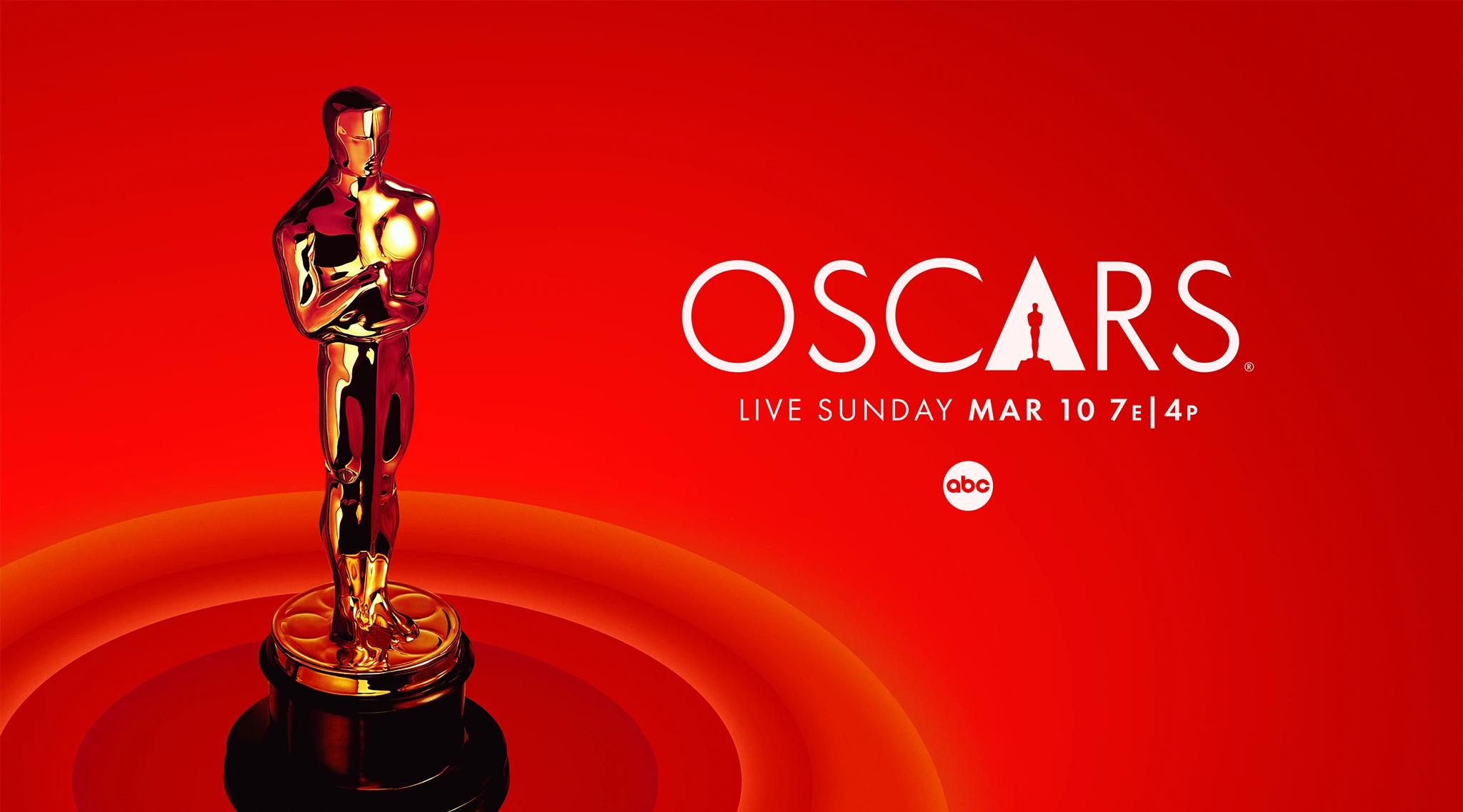
Oscar 2024 Best Picture Predictions
I fully expect Oppenheimer to clean up at the Oscars, including winning Best Picture. It has nominations across the board and seemingly a massive amount of respect from members all over the industry.
Though Oppenheimer clearly wouldn’t be my personal pick, I’m just happy to be able to watch a bunch of famous people hand each other trophies all night. That may sound sarcastic, but I do truly love seeing who gets rewarded for their work each year. Movies are still important, and if these are the best ones we have, we’re doing alright by me!
Zack has been hooked on games ever since his older brother taught him where to find the secret warp whistles in Mario Bros. 3. He has never felt more joy than when Yoshi congratulated him on getting 120 stars in Mario 64 or more sadness than when he played Kingdom Hearts 3 after waiting 14 years for it. Zack mails a letter to Nintendo every day asking them to bring back Chibi Robo and will gladly tell you all about why it’s one of the greatest games of all time. He was hoping that writing for the site would help him get through his backlog, but it actually just made it worse now that he’s hearing about so many more great hidden gems. Oops…


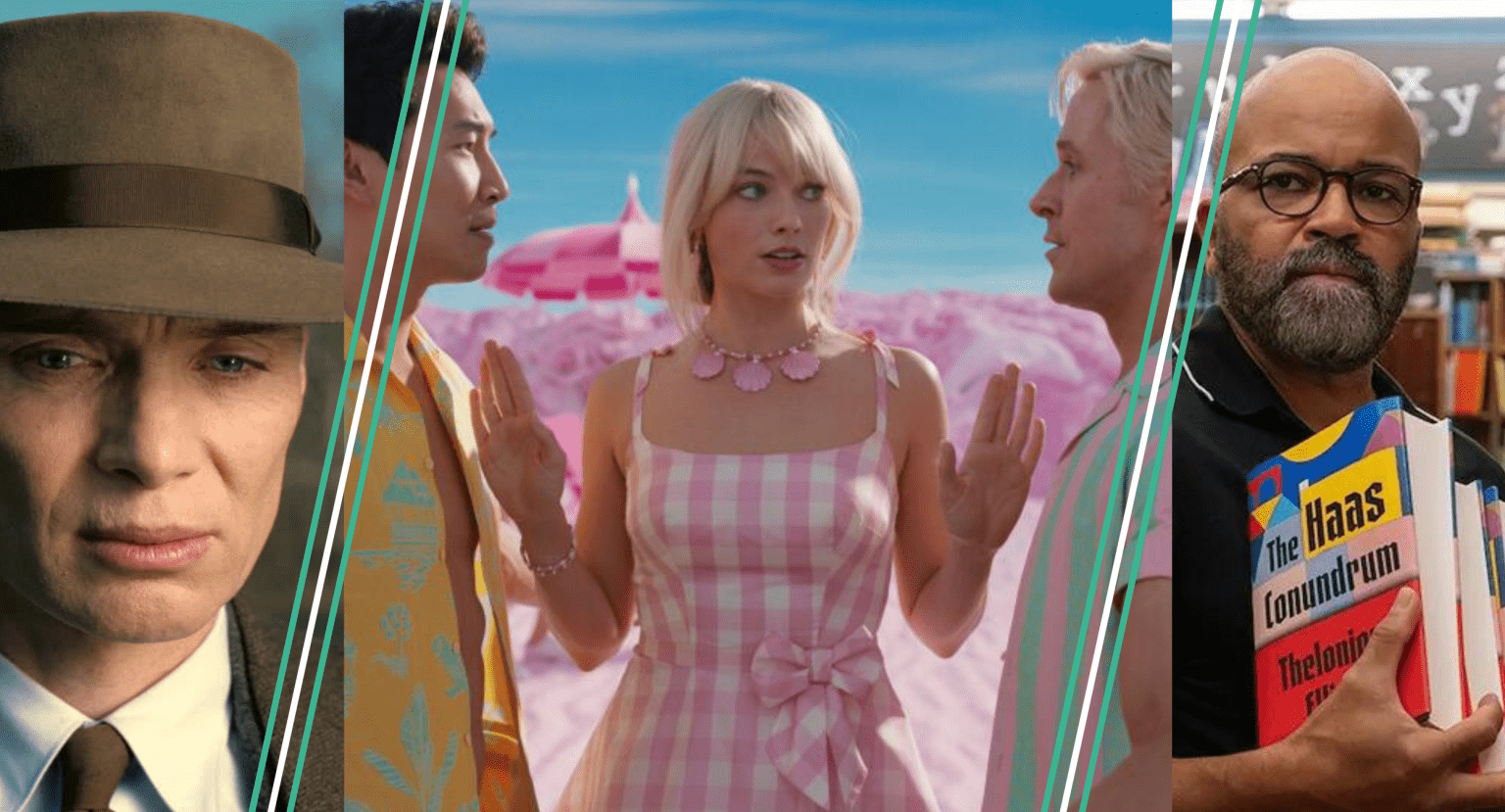







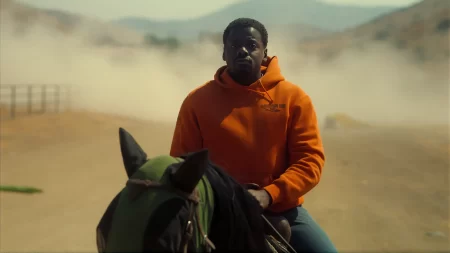
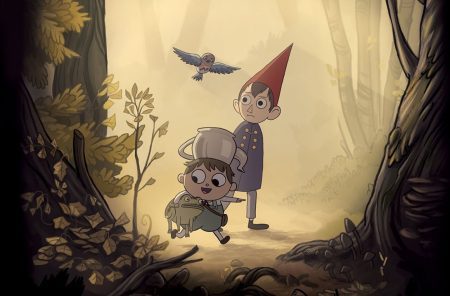
Oppenheimer?? More like Crappencrapper!!